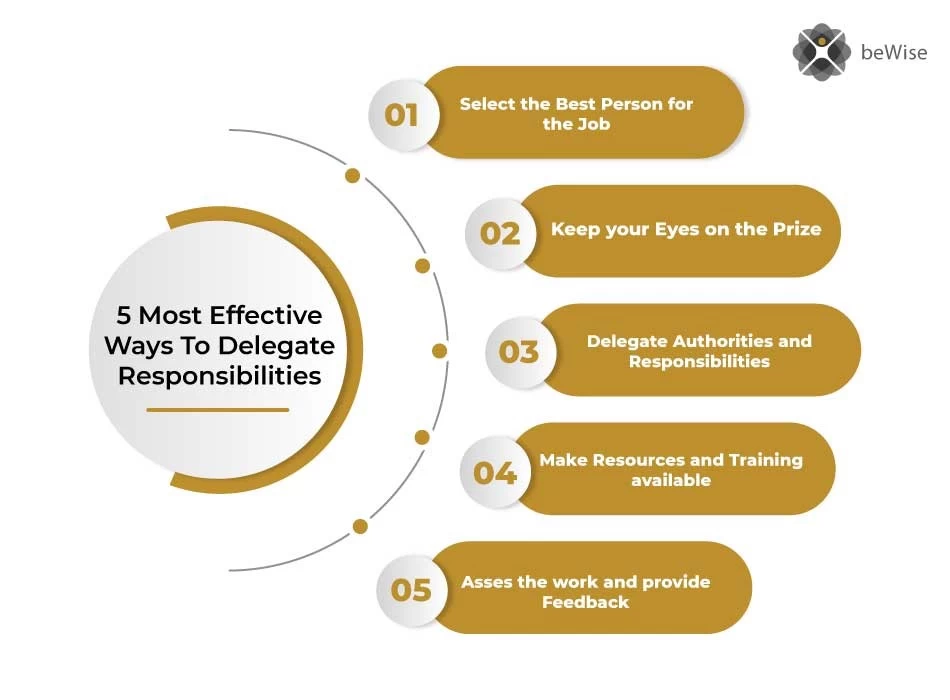Being a leader doesn’t mean that you’re best at everything, but it’s how effectively you manage your team and work towards the same goal. It is about how you utilize your resources effectively and the strategies behind the ways to delegate responsibilities. One of the essential managerial skills to reach our goal is delegation. Having a good foundation for any business delegation plays an important role.

Delegation refers to the power to allocate duties to your direct subordinate. It’s critical to delegate jobs since the higher-level strategic planning for which you’re accountable requires time and effort. You won’t have time for the essential tasks if you’re too engaged in doing something that doesn’t require your expertise. While delegation may seem like an easy task, many times managers fail to delegate tasks effectively. To avoid this, let’s focus on some ways to delegate tasks.
5 Ways to Delegate Responsibilities Effectively
Select the Best Person for the Job

To get the best-desired outcome, you must first understand who you should choose for the given task. Everyone has unique talents and skills. Therefore, you must assign the work to your employees depending on their expertise and skill set.
Keep Your Eyes on the Prize

To delegate effectively, you must have a good understanding of the tasks at hand. Let them know why you chose them to complete the work, and then let them do their tasks. Also, try to understand the needs and requirements of your employees. It will help them feel motivated towards the goal. It is also important to have a kind approach while working with your team, acknowledge their work, and encourage them to succeed.
Make Resources and Training Available

Ensure that the person assigned to work has the tools and resources necessary to do it successfully. Resources consisting of money, training, equipment, time, space, reorganized responsibilities, or assistance from others are all things that can help. All the aspects that will help the individual to complete the given task.
Delegate Authorities & Responsibility

Sometimes we find ourselves in circumstances where our hands are tied, and we are unable to make decisions. As a result, work slows down, you must seek help, and the approach takes more time. Additionally, to ensure that the team operates at peak effectiveness, we must offer them considerable rights to make informed choices.
We must create a work environment and culture where people feel free to make decisions, voice their opinions, and feel free enough to ask about their doubts and problems they may face to complete a given task.
Assess the Work & Provide Feedback

Set small milestones to ensure that the work is done within the timeframe you’ve set. Assess the task and give them regular feedback. Also, discuss with them the difficulties they’re encountering finishing the job and propose advice for how they may go forward.
Successful delegation needs to take place in a company if the manager or leader is open to innovative ideas and opportunities. Be flexible and encourage your team when they suggest something.
Takeaway
Delegating is a skill that requires practice and refinement over time. However, it not only benefits the project’s accomplishment on time but also helps build employee trust and commitment, along with higher productivity. Ensure that the right people are doing the right things at the right time.
The Bwise team provides you with the best solutions for framing proactive and creative strategies. Find out more about strategies for running a successful business by scheduling a consultation with our experts.

